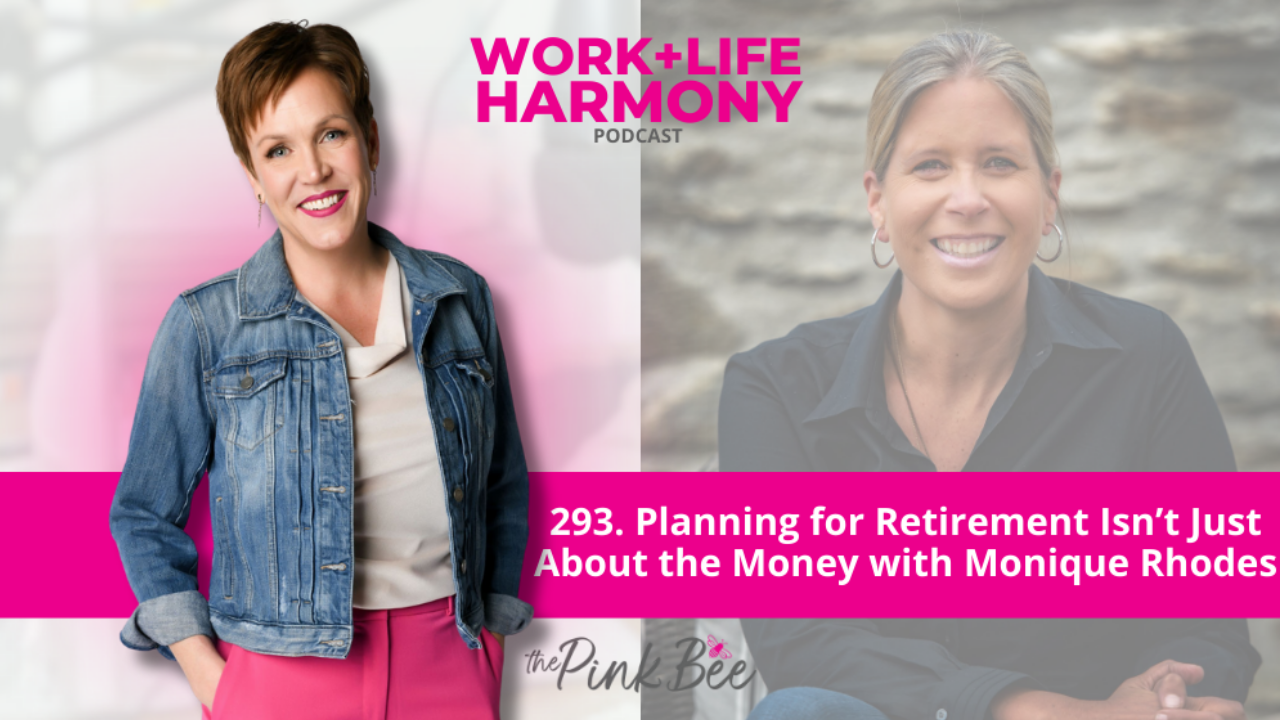293 Planning for Retirement Isn’t Just About the Money with Monique Rhodes

When we think about retirement, most of the conversation centers around finances. But what if that’s only part of the story? In this episode, I’m joined by the incredible Monique Rhodes to talk about the part of retirement planning no one’s really talking about...the emotional and mental transition.
Monique shares why so many women hit retirement age and find themselves feeling lost, disconnected, or even invisible, despite doing everything they were “supposed” to. Together, we unpack the loss of structure, identity, and purpose that can come when careers end and roles shift and how to intentionally plan for what comes next.
Whether retirement is around the corner or years away, this conversation is filled with perspective-shifting insight and gentle encouragement to start thinking about the whole picture—your time, your joy, your relationships, and your purpose.
In This Episode, We Talk About:
- Why financial planning isn’t enough to feel fulfilled in retirement
- The identity shift that can leave women feeling untethered
- The emotional toll of losing everyday social connections
- How to start building a meaningful post-retirement life before you get there
Connect with Monique:
- www.facebook.com/moniquerhodesofficial
- www.instagram.com/moniquerhodesofficial
- Free Training on How to Design a Retirement Rich in Purpose, Connection & Happiness: theretirementroadmapacademy.com/workshop
Listen to the episode here!
Or watch the episode here!
I’d be honored and grateful if you would head over to iTunes to leave a review and let other female entrepreneurs know what you learned! While you’re there, don’t forget to subscribe to the podcast so you don’t miss an episode.


